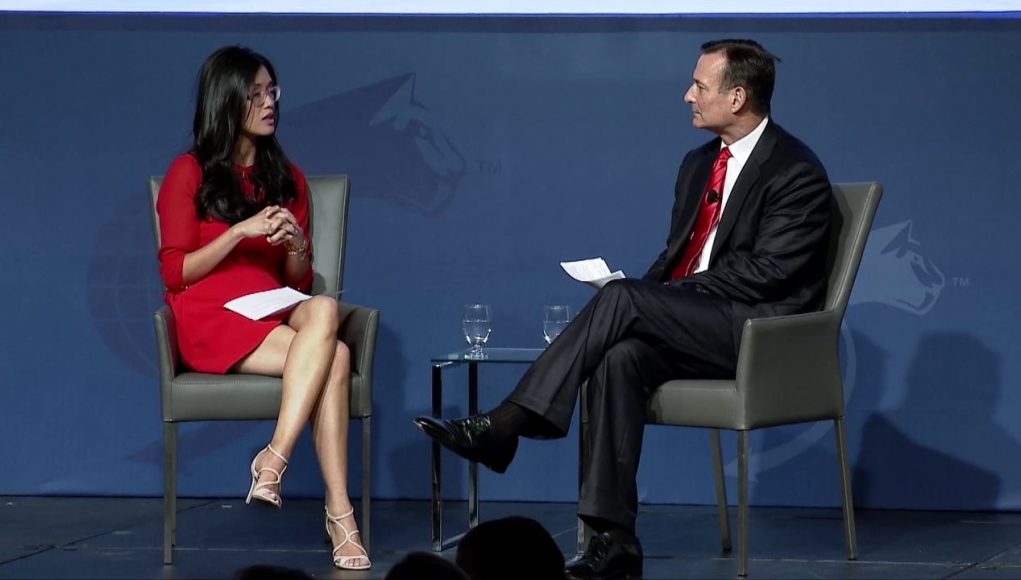Recently, I gave a talk to a group of professionals of the Ascend chapter, hosted by the Bank of New York Mellon.
Out of the hour-long discussion, the advice that most struck a chord with the participants was the need to have your own “personal board of directors.”
The 4 types of mentors you need in your career right now
I take no credit for this term – I stole it from Sallie Krawcheck of Ellevate who writes about it in her own LinkedIn posts.
She’s absolutely right that having mentors is one thing; having mentors who strategically can help your career is another.
Not all mentors are created equal.
It would be unfair and an inefficient use of their time if you treated each mentor exactly the same.
I have some mentors I speak to every day; others I contact once every few months. Knowing how you use people’s time, skills, and knowledge is critical in nurturing and prolonging that relationship.
Below are the four different types of mentors you should have around you. It doesn’t mean there aren’t more than this, but these are the most common ones. I call them the 4 C’s.
1. The Coach.
Growing up, your parents will be your first coaches.
If they’re good, they’ll encourage you when you’re down, listen, and help you figure out solutions to incoming problems. The issue is that at a certain point in your adult life, their advice will cease to be as effective.
It’s not because you’re too old for them, but because your career has outgrown their area of expertise. This is when you need to have older, wiser people around you who are more well-attuned to your industry and job.
They can coach you through tough moments, think big picture on projects and ideas, and help you solve work-related problems. Their satisfaction is knowing they are paying it forward by helping someone younger who has potential.
2. The Connector.
These are some of the most important mentors to have and they are pretty rare.
Most people are very inward looking. Connectors are outward-facing people whose very satisfaction comes from helping people meet each other.
I’ve met half-dozen true connectors in my life and without them, I would not have had as much success.
Nobody knows why they love connecting people, but they all share traits of having bountiful amounts of energy and loving new ideas. They have a wide and very deep network of people who all respect them and they often “get things done.”
If you meet one of these people, hang on.
3. The Cheerleader.
Before OMI made this word a “summer of 2015” song, cheerleaders were absolutely critical.
These are the people whom you can call after getting a big promotion and they will be as thrilled for you as your mother. And believe me, nobody will ever be as thrilled as Mom. In a sometimes cutthroat world, you need people who will genuinely be happy for you and who will be there when everyone else has left–i.e., after your company has gone bankrupt.
I have one person like this who will send me encouraging texts or take my call immediately if I’m having a particularly bad day. Sometimes that’s all you need to get you through.
You don’t need too many people like this–sometimes one is just enough, but this person is your rock.
4. The Challenger.
This mentor is not exactly going to be someone you’ll be spending New Year’s Eve with because he or she is there to call bullsh — on a lot of things that will sometimes make you uncomfortable. But that’s OK.
If you want lots of happy talk, call Mom. She will love everything you do.
If you want to grow, you will want some challengers in your life who will tell you when they think you’re doing something wrong or if an idea just plain sucks.
They’re the ones who, after you call the Cheerleader about your great idea, will tell you a dozen ways why it won’t work unless you do X, Y, and Z.
This criticism, if it comes from the right place, will set you on the right path. Challengers are super smart and super fast — they often don’t have a lot of time so you’ll find they’ll give their dose of advice quickly and move on. Call upon them only when you need it.
And if you want to hear more about mentoring, tune into my new podcast, Radiate, which debuts today where I sit down with Andrea Jung, the former CEO of Avon, on how she’s crafted a successful career. It’s an exciting new adventure that I’ll be sharing with you on LinkedIn.
Please tune in on iTunes, SoundCloud, Stitcher, TuneIn and Google – a whole host of options! And make sure you review it!
For more business and career tips, check our entrepreneurship section and subscribe to our weekly newsletters.







It’s also important to choose a mentor you’re comfortable with and the one who inspires you. Psycology plays crucial role here; some people are motivated by challenges they meet on their way, while others prefer somebody to cheer them up as they are fed up with obstacles during the workday.